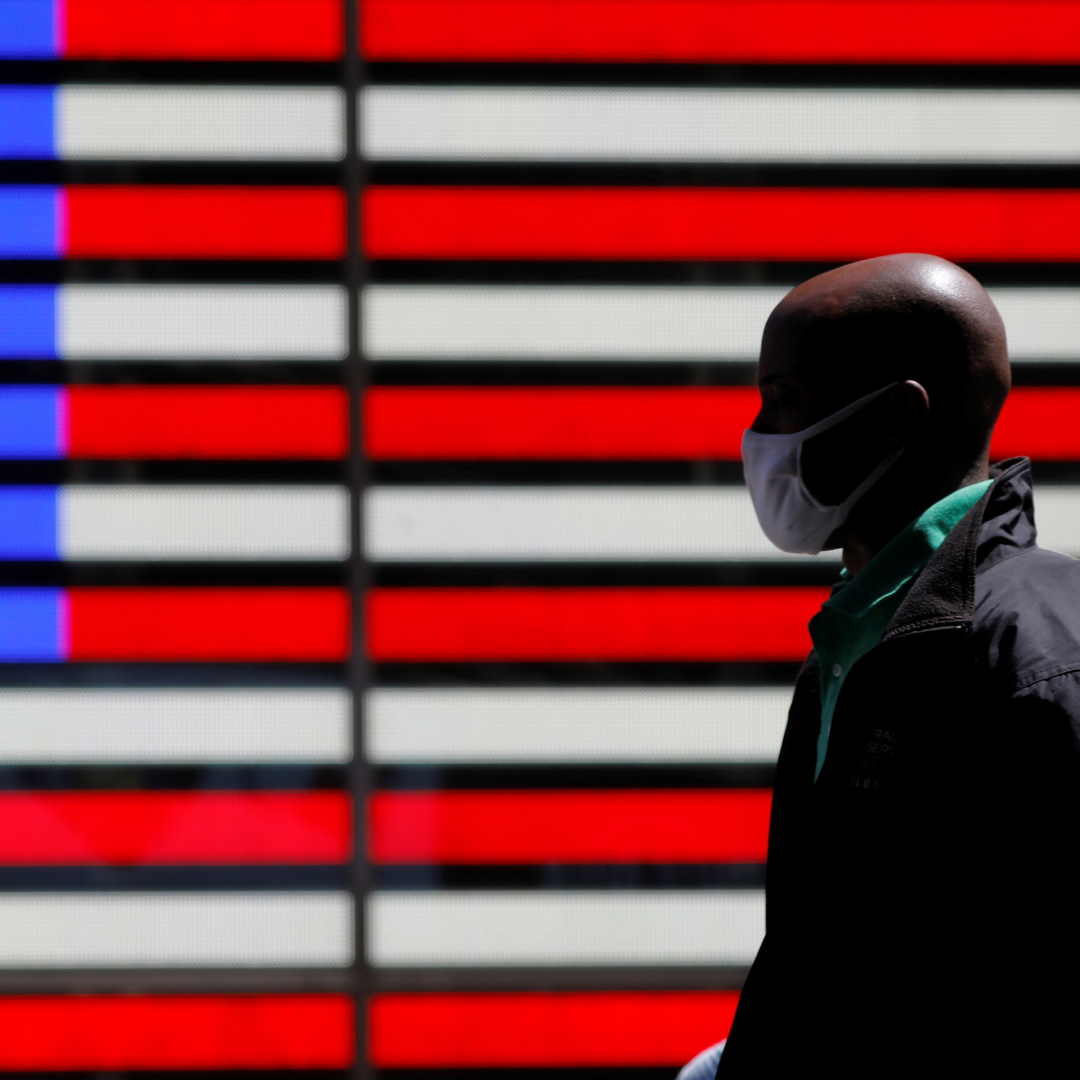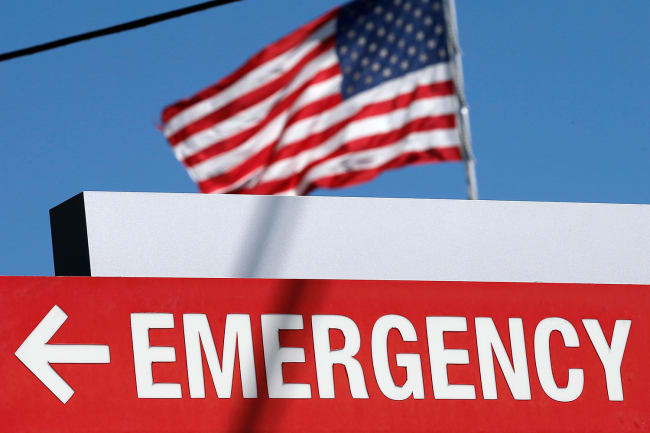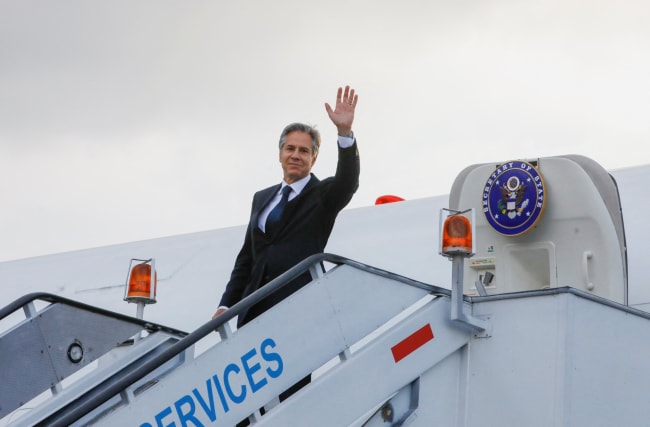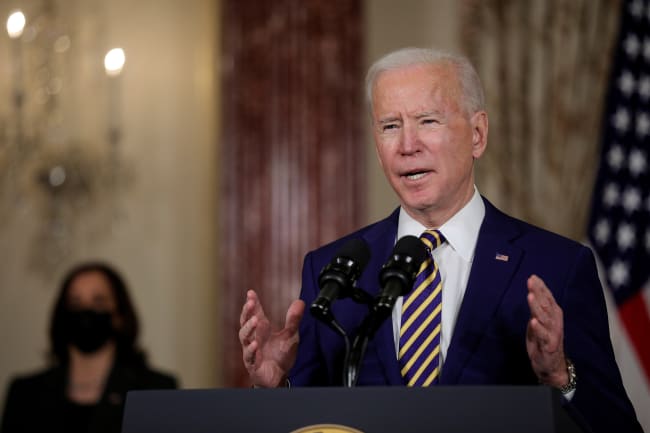COVID-19 demonstrated that the United States was unprepared to protect vital national interests during a global health crisis. The pandemic has killed over one million Americans, damaged the economy, set back global development and humanitarian gains, and raised doubts about U.S. power and principles globally. Global health threats—such as the 2014-16 Ebola outbreak in West Africa—revealed workforce capability gaps that were not adequately resolved and that re-emerged during COVID-19. For the United States to continue to lead in global health, this cycle of failures and missteps must be addressed.
The COVID-19 pandemic has killed over one million Americans
Reforms to strengthen U.S. and global health security are underway. However, these efforts lack a focus on how the United States engages in health diplomacy to develop strong collaborative relationships with foreign governments, a critical capacity for health security. Creating a specialized cadre of Foreign Service Officers, with competencies in public health and foreign affairs, cultivated across a career, can bolster U.S. capacity to forge the partnerships needed to counter shared threats. It is time for the United States to create a Foreign Health Service to better protect Americans and advance U.S. interests abroad.
Interest in Health Diplomacy Flares Then Fades
Governments engage in diplomacy to protect and advance national interests. Historically, public health has not been a vital national interest in U.S. foreign relations and needed no sustained investment in diplomatic acumen on the science and practice of public health. However, after World War II, the United States negotiated a series of science and technology agreements with foreign governments to advance science and improve bilateral relations. These agreements channeled more resources toward health concerns and increased health's foreign policy importance.
After the Cold War, the United States became a global health leader by, among other things, providing unprecedented foreign assistance for health through multiple bilateral and multilateral partnerships. Today, the United States is the largest donor in global health and provides significant resources to several important global health initiatives. For example, the U.S. President's Emergency Plan for AIDS Relief (PEPFAR) is the largest contribution in history that any government has made to fight a single disease.
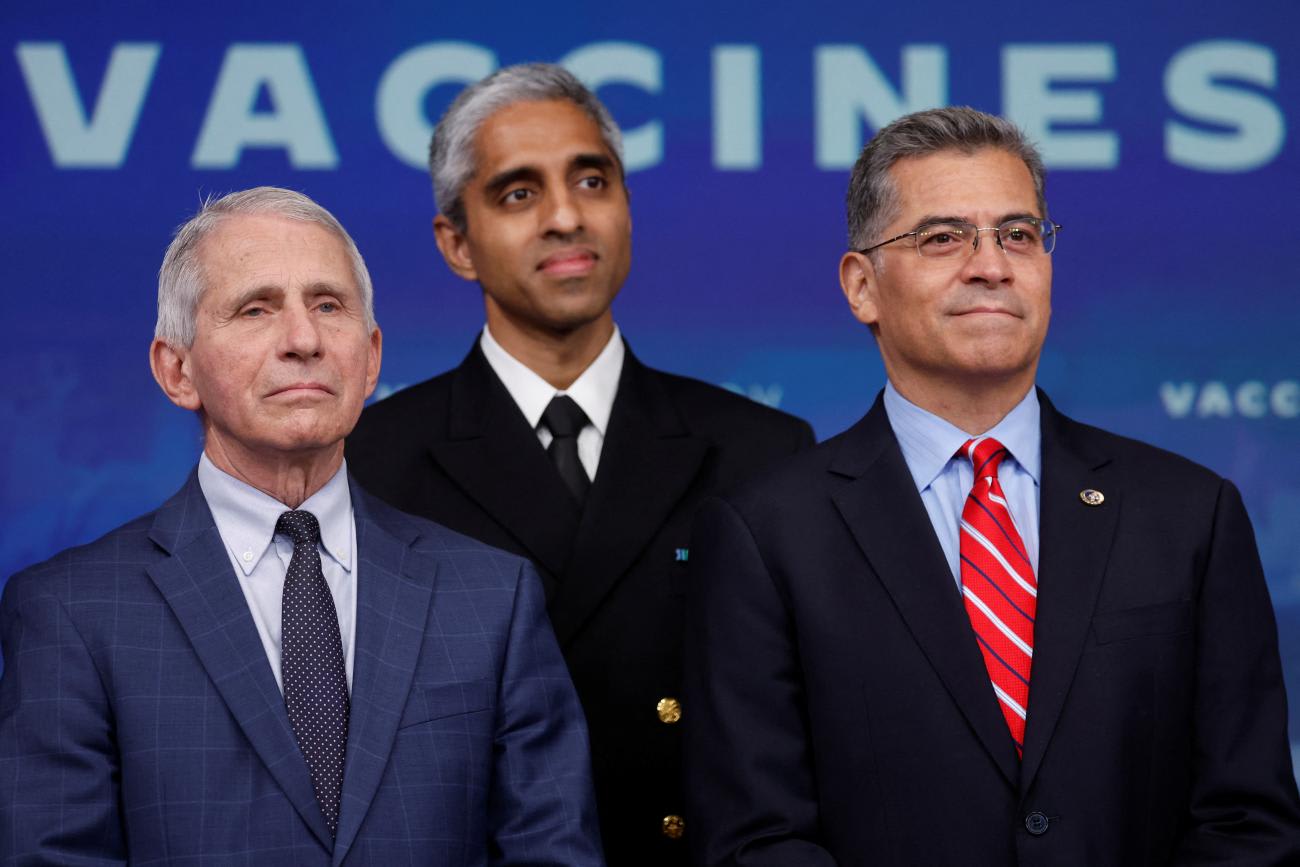
Through PEPFAR and other efforts, global health gained more prominence across foreign policy agencies, including the Department of State and the U.S. Agency for International Development (USAID), as well as domestic agencies, particularly the Department of Health and Human Services (HHS). HHS is the largest department in the U.S. government and channels more public funding than any other federal agency. HHS also oversees the Centers for Disease Control and Prevention (CDC), the Food and Drug Administration (FDA), the National Institutes of Health (NIH), and the Office of Global Affairs (OGA), all of which have established global health offices and overseas workforces that serve in U.S. embassies abroad.
Public health's higher foreign policy profile also increased attention on the emerging field of global health diplomacy. This interest stimulated the development of diplomatic capacities and competencies in health diplomacy, including deploying more Health Attachés to U.S. embassies, assigning more CDC staff abroad to support expanded global health mandates, and the opening of the FDA's first overseas offices. These activities also highlighted challenges the practice of global health diplomacy faces, such as maintaining a trained and ready global workforce deployed abroad where it is most needed.
Collectively, HHS's agencies and overseas staff became the main conduit of communication and collaboration between the U.S. government and ministries of health, regulatory bodies, and biomedical research institutions across the globe. Through these strategic partnerships, HHS and its constituent agencies—OGA, CDC, FDA, and the NIH—developed robust health security networks to address global health challenges where they originate, to help to protect and project U.S. interests globally, and to manage health threats through strategic partnerships and scientific collaboration.
Through PEPFAR and other efforts, global health gained more prominence across foreign policy agencies, including USAID and HHS
Today, HHS has more than 600 direct hire personnel and over 1,500 locally employed staff working in more than 60 countries. However, each agency of HHS uses a domestically focused personnel system and has struggled to staff and support its overseas workforce. HHS experiences chronic problems with recruiting and retaining staff; rapidly reassigning personnel; inadequate foreign service training; and the lack of language, cross-cultural, overseas management, and leadership competencies. Even with decades of overseas experience, HHS has no career paths in global health. Despite the increased mandate to keep Americans safe from health threats, HHS still has no department-wide global staffing system to support its expanding role in U.S. health diplomacy.
Unfortunately, the burst of attention concerning health diplomacy faded before policymakers and legislators adequately addressed these challenges. By 2020, U.S. foreign policy had pivoted to confront more traditional national security concerns, including foreign threats to the U.S. economy, changes in the balance of power, and the danger that authoritarianism poses to American interests. In this context, improving U.S. health diplomacy was not a priority, highlighted by the U.S. withdrawing from the World Health Organization. Growing nationalism, coupled with foreign policy approaches that were openly hostile to multilateralism and conventional diplomacy, damaged morale in the State Department and other agencies that maintained Foreign Service workforces.
In this difficult environment, the COVID-19 pandemic exacerbated the unresolved challenges in global health diplomacy facing U.S. embassies, the diplomatic corps, and domestic agencies with personnel stationed abroad. For example, the State Department drew down staff and federal agencies brought thousands of employees back to the United States, which stretched urgently needed capacities abroad. The lack of FDA staff in the U.S. embassy in Beijing created challenges because experts in personal protective equipment, masks, and other medical commodities had to work remotely from temporary locations in the United States to address critical supply pipelines that originated in China.
Even though the pandemic might seem to be over in the United States, ambassadors and Chiefs of Mission at U.S. embassies still need to manage infection control within the embassy community, analyze vaccine diplomacy within the region, and weigh competing public health interventions—often without relevant technical staff to advise which decisions are compatible with the local health system's capabilities and consistent with the best available science. Neither U.S. foreign affairs nor domestic public health agencies possess a workforce with the competencies to effectively manage the nuanced and complex demands of today's global health environment. A coordinated approach across agencies is needed to ensure more coherent policy objectives and effective outcomes in U.S. health diplomacy.
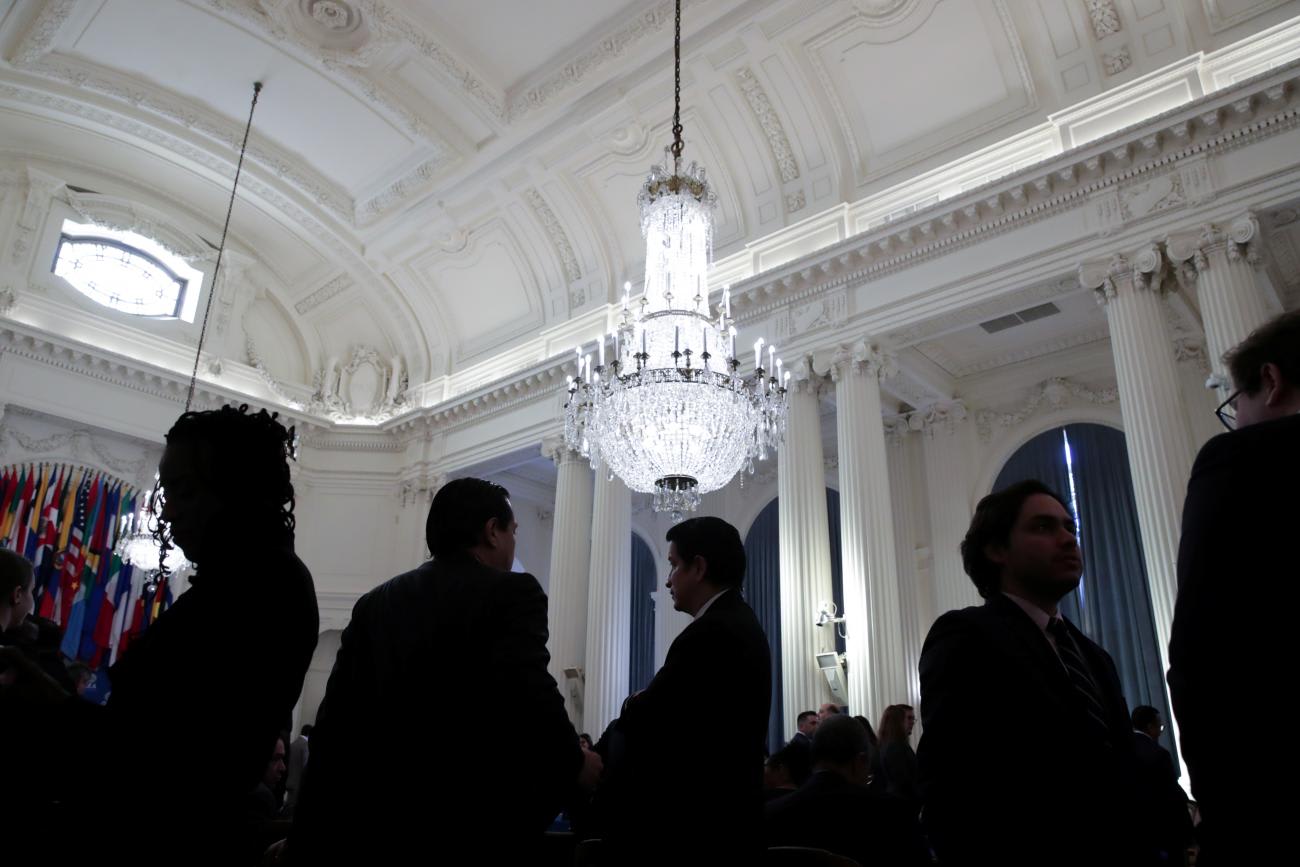
The Need for a Foreign Health Service to Keep Americans Safe
The COVID-19 pandemic has bolstered the need to strengthen U.S. capacities for health diplomacy. New funding for, and reforms of, the State Department and the Foreign Service are being considered so that they can better respond to twenty-first century challenges, including global health threats. The CDC is planning changes that would "strengthen and speed the CDC's response to public health threats and improve its communications." However, strengthening health diplomacy requires more than reorganizing individual agencies. Cross-cutting remedies are needed to ensure that U.S. health diplomats can integrate foreign policy and public health priorities to forge the partnerships needed to help nations collectively address health threats.
Through the Foreign Service Act, the U.S. government has created specialized Foreign Service Officers (FSOs) who cultivate competencies across a career to protect and advance important national interests. The United States trains and deploys FSOs to work in the State Department, USAID, the Foreign Agriculture Service, the Foreign Commercial Service, the Animal and Plant Health Inspection Service, and the U.S. Agency for Global Media. These six agencies also address health issues; for example, USAID has Population, Health, and Nutrition Officers, who handle the challenges of development and health. But none of these agencies has public health as its core mission, and none can harness and channel the capacities of the U.S. domestic public health agencies within HHS into a foreign affairs environment.
Establishing a Foreign Health Service (FHS) would address the fragmentation and workforce incapacity experienced in U.S. health diplomacy before and during COVID-19. A strong diplomatic corps with science-based competencies in public health would also be better equipped to address the mounting health threats associated with climate change. Diplomats trained over a career to integrate health and foreign affairs priorities can serve U.S. interests more effectively than cobbling together multiple agencies that are primarily focused on national issues and assign personnel abroad using a domestic personnel system. Additionally, a FHS would harness and project the massive U.S. domestic health capabilities into a global environment, reinforcing critical health security and communication networks that HHS maintains globally, to tackle the health challenges of the twenty-first century more effectively.
For example, a FHS could produce multiple benefits for HHS. It would offer personnel at OGA, CDC, FDA, and the NIH a career pathway to use their technical competencies in serving as health diplomats, while providing continuity of staffing to overseas offices. Creating such a pathway would also mitigate staffing delays, gaps, and other problems that HHS experiences in recruiting, training, deploying, and retaining staff for overseas missions—problems that global health crises exacerbate.
Most who have served abroad with HHS would agree that the greatest challenges facing its overseas programs are recruiting, retaining, and supporting the global health workforce. The domestic personnel systems used to provide staff for HHS's overseas efforts have reached a breaking point. A FHS would allow HHS to overcome these persistent staffing challenges in finding senior-level employees who have both substantial international experience and advanced foreign affairs training. With a unified approach to global staffing, HHS could support all HHS agencies, divisions, and offices that support overseas programs and partnerships.
Establishing a Foreign Health Service will not be easy, but the strategy has successful models to follow
Beyond HHS, a FHS could become the center of gravity for health diplomacy practice, analysis, and collaborative activities for all federal departments and, when appropriate, private-sector and nongovernmental actors. As such, a FHS would facilitate interagency coordination across the U.S. government in global health diplomacy and enhance the respective health missions of the State Department, USAID, the White House, and the National Security Council in the process. A career development pathway in global health diplomacy is needed to strengthen U.S. health security in a strategic, substantive, and sustained manner.
Establishing a FHS will not be easy, but the strategy has successful models to follow. Congress last amended the Foreign Service Act to create a specialized diplomatic workforce in 1981. Industry advocates argued that the Foreign Service then lacked the market analytics, tools, and programs needed to protect the competitiveness of U.S. goods and services in foreign markets. Congress created the Foreign Commercial Service (FCS) and established a career pathway for specialized Foreign Service Officers who possessed competencies in commercial issues, and foreign affairs, from entry to senior executive levels. The FCS develops market analytics and programs, drawn from the domestically focused Department of Commerce, but adapted for an international context. The FCS has allowed the U.S. government to better promote and protect U.S. commercial interests abroad while advancing U.S. national interests globally. This same approach could be applied through HHS to improve U.S. health diplomacy and security.
This Time, Let's Walk the Walk
Before COVID-19, the United States warned the world of threats to global health security and identified deficiencies in capabilities but failed to take the actions needed to capitalize on U.S. investments in global health. Failure to make U.S. health diplomacy more organized, effective, and durable contributed to the heavy price the United States paid domestically and globally during the pandemic.
COVID-19 has generated a flurry of attention on enhancing the capabilities of the U.S. government to prevent, control, and mitigate the impact of health threats. Similarly, interest is growing for new strategic partnerships and alliances to prevent, prepare for, and respond to the next pandemic as well as promote other U.S. global health interests. In the post-COVID world, the pressure to address these challenges is more critical than ever.
Now is the time for Congress to create the world's first Foreign Health Service and provide a foreign policy capability that the United States can harness to protect Americans at home, advance vital interests abroad, and rebuild shared responsibility among nations, which remains the cornerstone of global health security.
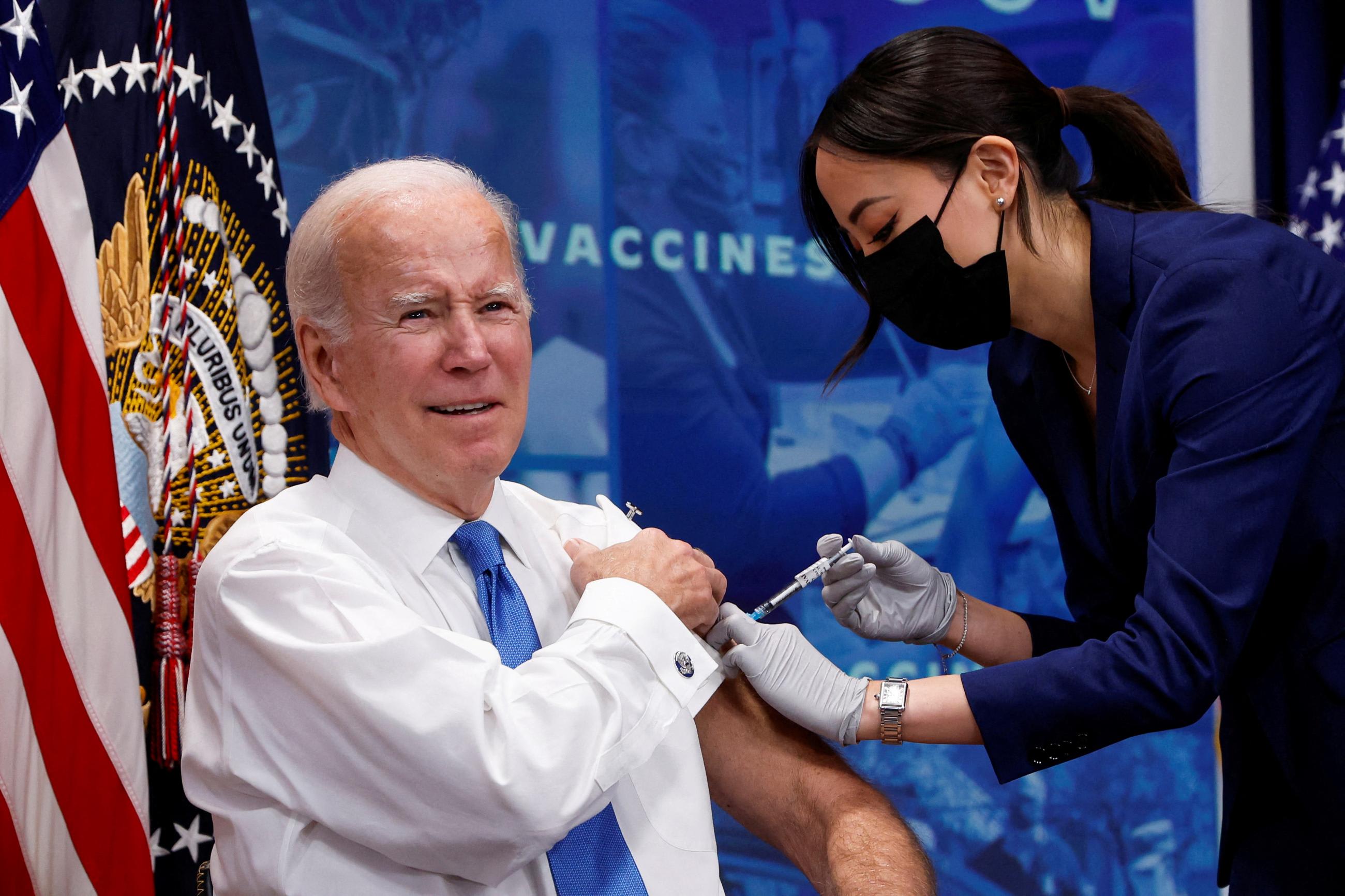
AUTHOR'S NOTE: The views expressed in the article are the author's and do not reflect the official position of the U.S. Department of Health and Human Services or the Centers for Disease Control and Prevention. Dr. Brown thanks Ken Bernard, David Fidler, Rebecca Katz, Jimmy Kolker, Tom Novotny, Jay Varma, Ted Pestorius, Desmond Williams, Peter Kilmarx, and Charles Ford for their valuable insights as he drafted this article.
